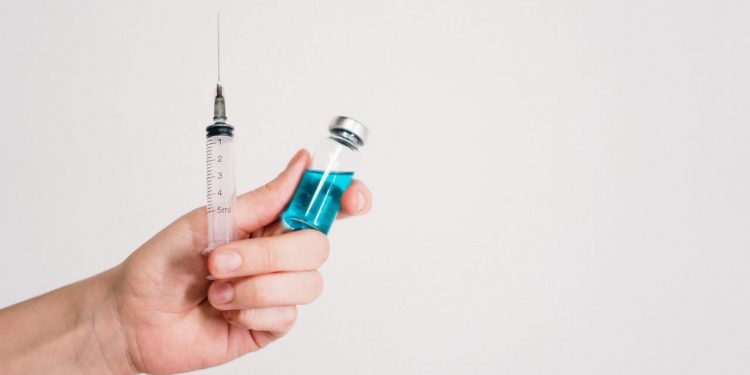Three more potential COVID-19 vaccines have shown an active immune response in healthy people is considered generally safe. The Lancet journal published studies of the Oxford University coronavirus vaccine that is supported by AstraZeneca. Chinese researchers have developed the COVID-19 vaccine undergoing phase 2 trials supported by CanSino Biologics.
The studies published in the journal ‘The Lancet’ suggest the Oxford University coronavirus vaccine is being tested at phase 1 and phase 2 clinical trials in collaboration with AstraZeneca. The coronavirus vaccine is in phase 2 trial of Chinese researchers funded by CanSino Biologics.
The US pharmaceutical company (Pfizer) and German biotechnology company (BioNTech) have the vaccine in phase 1 and 2 clinical trials. The results and analysis of the study are not yet published in peer-review journals and is available on MedRxiv in an online server.
Microbiology professor from Seattle at the University of Washington School of Medicine, Deborah Fuller commented,
“Both groups saw the immune responses that they were hoping to see, and the adverse effects weren’t severe enough to keep them from moving forward.”
Oxford University COVID-19 Vaccine
The Oxford University vaccine activated an immune response with the formation of antibodies in 28 days of vaccination, and within 14 days, the T-cell immune response was induced.
Researchers found that the antibodies lasted for about 56 days, and the participants will be monitored for at least one year to understand the duration of the immune response.
After the first dose of the vaccine, neutralizing antibodies that can nullify the virus was detected in most participants. In contrast, after 28 days, a second booster was given that produced antibodies in all people.
In the plasma of recovered people of COVID-19, the neutralizing antibodies were detected; however, the scientists are unaware of how long they will last and protect against coronavirus. Fuller believes that the induction of natural antibodies and COVID-19 vaccine-induced is a good sign.
“There is increasing evidence to suggest that T-cell responses may play an important role in protection from SARS-CoV-2.”
Antibodies in the immune system target invaders in the lymphatic system and blood like bacteria and viruses, and the T-cells defend the body from the attack of infected particles.
Also Read: Role of Immunity in Fighting COVID-19
Oxford University vaccine trial has 1,077 healthy participants aged 18 to 55 years (adults) from the United Kingdom. Neither of the participants had a history of COVID-19 infection, and half the participants were female, and more than 90% were white.
However, mild side effects were observed in people; headache, fatigue was most common, while pain in the injection site, chills, high temperature, and muscle ache were also reported. The use of a pain reliever 24 hours post the vaccination reduced the side effects, and these were eliminated in the second dose.
Phase 3 trials of the vaccine have been started in the United Kingdom, Brazil, and South Africa. AstraZeneca said if the vaccine has effective results in clinical trials, they can formulate 2 billion vaccine doses.
CanSino COVID-19 Vaccine Completes Phase 2
The CanSino vaccine phase 2 trial showed that the immune system produced a robust response and was generally safe. Coronavirus vaccine trial was conducted to include 508 healthy people up to the age of 83 years, in Wuhan, China.
The participants were randomly assigned to receive a low or high dose or an inactive placebo dose. About 47% of the people from the low-dose group and 59% of people from the high-dose group were able to develop the neutralizing antibodies.
The study showed that the candidate vaccine induced an immune response in T-cells in 88% of people from the low-dose group and 90% of people belonging to the high-dose group. Additionally, both of these immune responses lasted for 28 days.
CanSino vaccine utilizes the adenovirus (weak human cold virus) that delivers the genetic code to combat the spike protein in new coronavirus in the body cells. The body cells produce spike protein that assists the immune system in recognizing and fighting the coronavirus.
The CanSino coronavirus vaccine has a low antibody response in people above the age of 55 years, and it is of concern because age and underlying health conditions have a higher risk of developing a severe form of COVID-19.
Side effects for mild and moderate infections were low; however, 9% of the people in the high-dose group experienced severe consequences, and fever was most common. Naor Bar-Zeev and Dr. William Moss in their study published in Lancet from the John Hopkins Bloomberg School of Public Health said,
“Much remains unknown about these and other COVID-19 vaccines in development, including longevity of response and in older adults or other specific groups, such as those with comorbidities who are often excluded from clinical trials, or ethnic or racial groups more severely affected by COVID-19.”
World Health Organization reports suggest that 24 COVID-19 vaccines are undergoing clinical trials around the world, and 141 vaccines are in the early stages of development.












